On 11 August, Rotor will play their first RPL match at the Volgograd Arena, which was built for the 2018 World Cup.
"Stalingrad’s Luzhniki”
Volgograd Arena is located in a memorable place, on the banks of the Volga at the foot of Mamaev hill. Previously on the site was Centralny Stadium, which was opened in 1962, although the first plans for such a structure in Stalingrad appeared in the 1930s. In 1958, the Young Leninets newspaper described the future stadium as "Stalingrad’s Luzhniki". The capacity was 35,000 spectators (eventually increased to 40,000), while there also were a swimming pool, athletics arena, gyms, sports hall and a dozen other sites at the complex.
The opening took place on 27 September 1962, with a friendly match between the USSR main and Olympic teams, which the main one won 1-0. By then the city had already been renamed Volgograd. Three days later Rotor - then known as Traktor - made their debut in the stadium, beating Torpedo Armavir 4-0. There, Rotor made their way to the Soviet Higher League in 1988, and five years later finished runners up in the Russian championship. UEFA Cup adventures beckoned, as they hosted high-profile rivals such as Manchester United, Bordeaux and Lazio. On 16 October 2002, the Centralny became the first venue outside Moscow to host an official match of the Russian national team, which it won 4-1 against Albania in Euro 2004 qualifying.

When Russia won the bid to host the 2018 World Cup, the region's leaders decided to build a new stadium on the site of the Centralny stadium with the working name "Pobeda". On 15 May 2014, Rotor played their last home game there, beating Enisey Krasnoyarsk 1-0 in the FNL; by the end of the year it was dismantled. Construction of the Volgograd Arena began in January 2015 and should have been completed by November 2017, but it was only officially delivered in April 2018. Prior to the 2018 World Cup, the 45,000-seat stadium hosted two test matches in the FNL: Rotor Volgograd beat Luch Energiya Vladivostok 4-2 - with the first goal scored by the home team's forward Khyzir Appaev - and lost to Krylia Sovetov Samara 2-0.
"It feels like sculpture protects the Arena"
The general designer of the Volgograd Arena was the Russian company Sport-Engineering. By the 2018 World Cup, they were also working on stadiums in Saransk, Nizhny Novgorod, Rostov and Ekaterinburg. The new stadium project was presented by Arena design institute, headed by Dmitry Bush.
"The Volgograd site selection in FIFA at the preparatory stage was constantly set as an example," the architect told Welcome2018. “They say that this is the ideal choice for the construction of the stadium, on the city’s main street near the centre. At the same time, it is situated between the world-famous Mamaev hill with the enormous Motherland statue on the one hand, and on the other the great Volga river. Looking for an architectural solution, we needed something bright and original. The plot there is small, and the place is beautiful. We had to match it. As a result the main idea is lightness, with a lot of air. The supporting structures at this stadium are open. The shape is a cone that tapers from top to bottom."
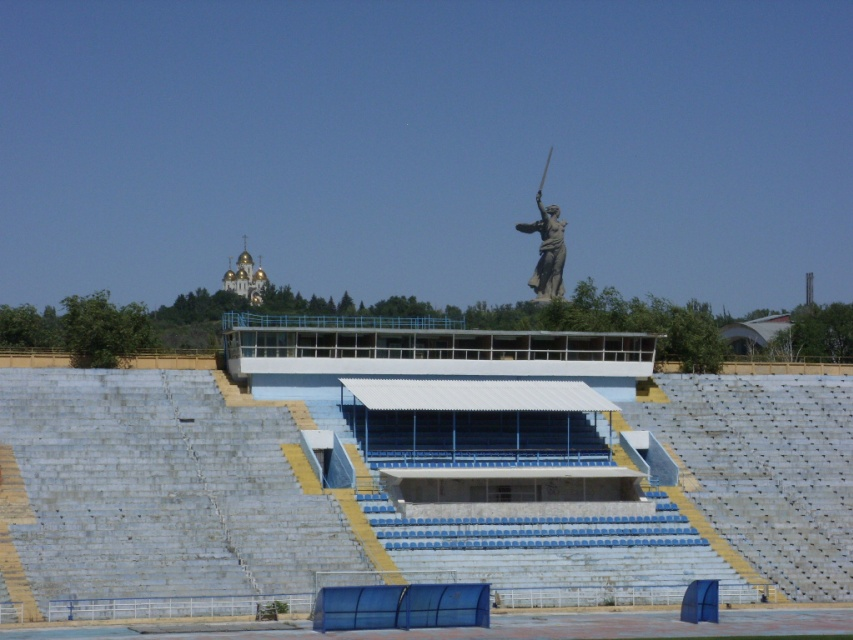
The roof of the arena is cable-stayed, which Bush called "a blue and white bicycle wheel". The only example of such a roof in Russia is Krasnodar Stadium, but it is a smaller structure. The French company Freyssinet participated in the installation [founded by French engineer Eugene Freyssinet - Premierliga.ru], and engineer Marc Gontier praised the stadium under construction. "When you look at it next to Mamaev hill, you get the feeling that the Motherland statue protects the arena, as if it watches over it, towering over the background of the stadium. This makes Volgograd residents especially proud and impresses foreigners," the Frenchman said in an interview with TASS.
Another architectural feature is the facade: it consists of beams and rods of different thickness, is covered with a transparent mesh from the inside and looks like a firework. "If you want, you can probably see the firework; the building turned out to be beautiful and spectacular,” said Bush. “In fact, when presenting the project at the public council of Volgograd, the name ‘Arena Pobeda’ was proposed for the stadium. The main idea, I repeat, was a lot of air."
The facade in the dark is illuminated in three modes: "everyday", "holiday", and "firework". In March, the colours of the Russian and Italian flags were displayed on the facade as a sign of support for the Italian regions most affected by the coronavirus infection.
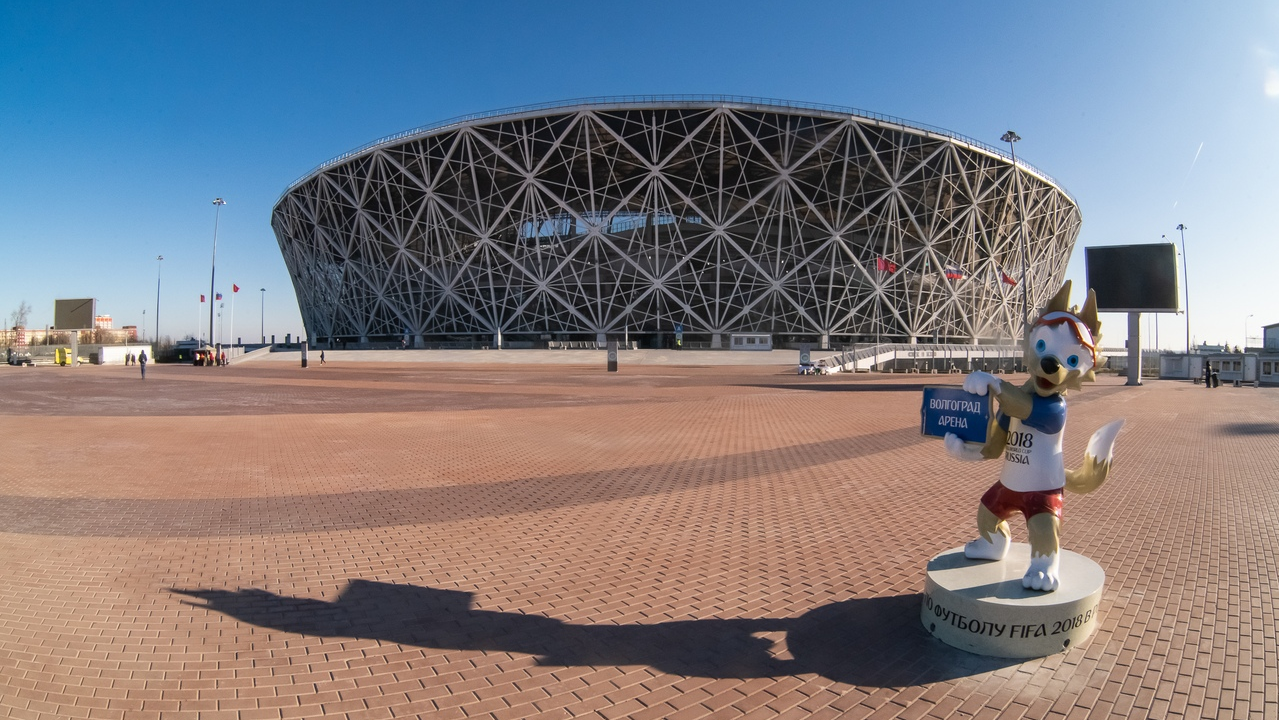
Key match: FC Tosno 2-1 Avangard Kursk, 2017/18 Russian Cup Final
Volgograd Arena was named as host of the 2017/18 Russian Cup Final in December 2017, before construction was even completed. At the same time, the Russian Football Union determined the date of the match as 9 May: Victory Day. The finalists were unexpected: FC Tosno, who were fighting for survival in the RPL, snatched their place from Spartak Moscow in a penalty shootout, and in the mid-table FNL semi-final, Avangard Kursk beat Shinnik Yaroslavl. In the round of 32, Avangard had knocked out CSKA Moscow.
Entrance to the final was free of charge, as the arena was filled with 40,000 spectators on the festive evening. By the 16th minute, the teams had already exchanged goals; Aleksey Skvortsov put Tosno in front, before Spartak Moscow product Igor Kireev quickly responded. The decisive goal in the 79th minute was scored by Reziuan Mirzov and brought a historic victory to Tosno. The Russian Cup was the first and last major title for the Leningrad region club. On 13 May Tosno lost 5-0 to FC Ufa and were relegated from the RPL, and in June ceased to exist.
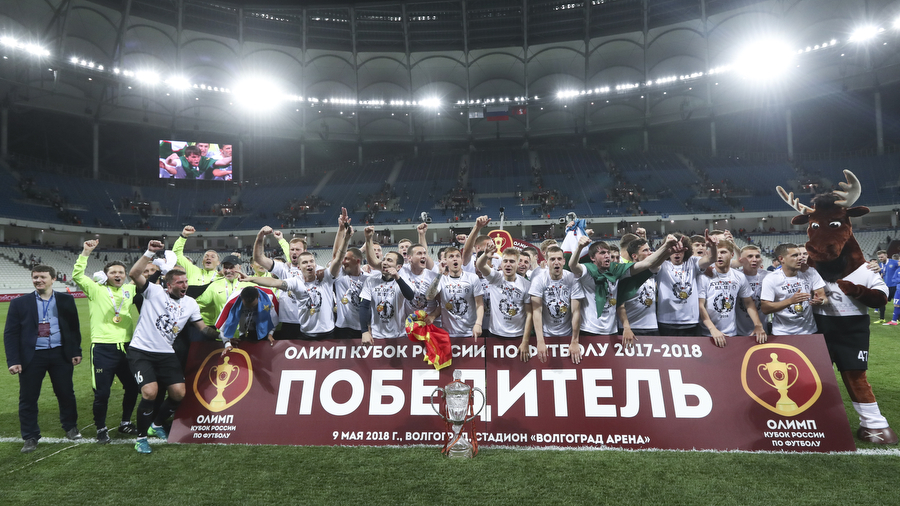
Most Memorable 2018 World Cup match: Tunisia 1-2 England
Volgograd hosted four group-stage matches at the 2018 World Cup. In the first game Tunisia almost took points from England. After Harry Kane's goal in the 11th minute, the Tunisians were awarded a penalty, which was converted by Ferjani Sassi. Parity was held until added time: Kane scored a second as England pulled out a 2-1 victory. Gareth Southgate's team went on to reach the semi-finals and finish fourth place.
Former CSKA player Ahmed Musa lit up the Volgograd Arena as his double helped Nigeria beat Iceland 2-0. Egypt’s 45-year-old goalkeeper Essam El-Hadari, who played there against Saudi Arabia, became the oldest player to appear at the World Cup, but the record was spoiled by a 2-1 defeat. Japanese fans also left their mark on Volgograd: after their country’s match against Poland - a 1-0 defeat - they cleaned the rubbish from in the stands, as they did in other arenas.
"We need to play big and real football in such an arena”
Rotor Volgograd’s first test match was played under the guidance of the experienced Sergey Pavlov. "The new stadium is beautiful,” gushed the coach after victory over Luch. “I have something to compare with, including foreign arenas. In such an arena, you need to play big and real football. We want to approach this gradually. Fortunately, our plans in this sense coincide with the plans of the leadership." In Volgograd, this was achieved without Pavlov: the coach left the club after the end of the 2017/18 season, and two years later the team won the FNL and returned to the top flight after a 16-year absence.
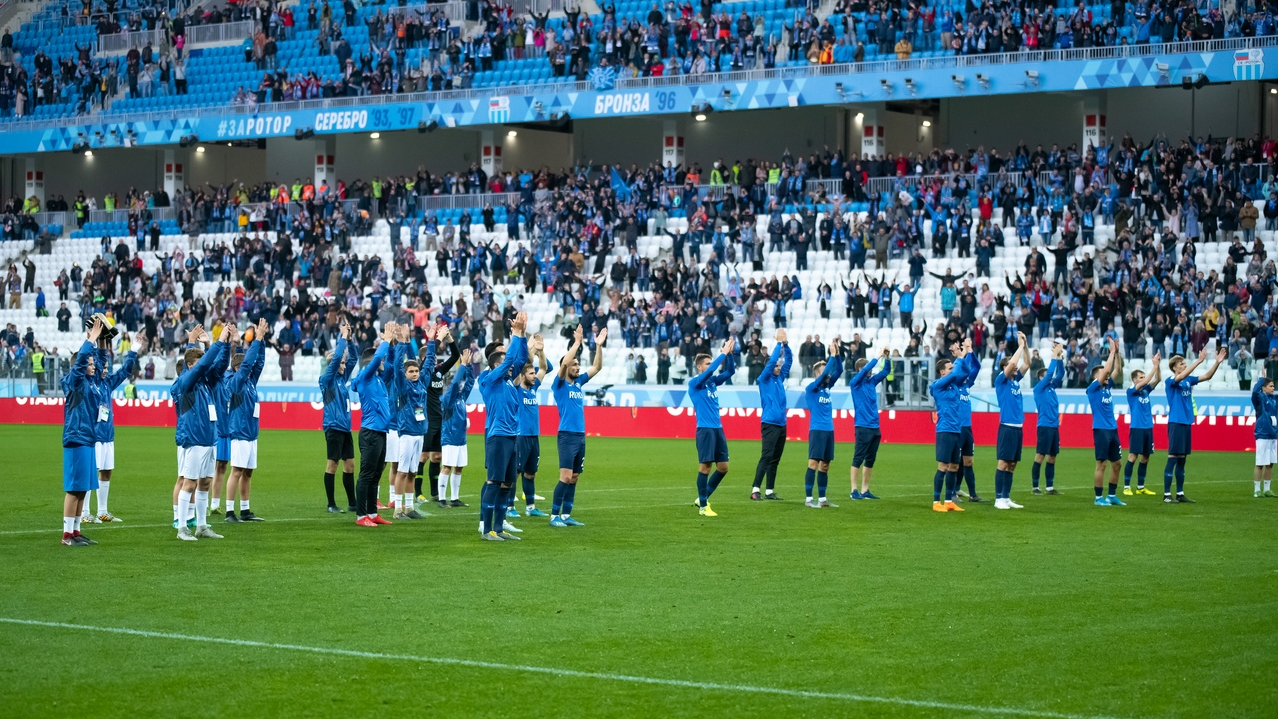
Rubin Kazan’s manager Leonid Slutsky is a native of Volgograd. His team will come to Rotor at the end of September, but the specialist first admired the Volgograd Arena at the Russian Cup Final. "The stadium is grand, the city deserved this arena. Rotor did us proud in European competitions, beating Manchester United. I am sure that everyone will enjoy playing at this stadium,” he told reporters.
Dmitry Parfenov coached Tosno in the Cup final and after winning the first trophy in his coaching career, he recalled going to the Centralny stadium as a Spartak player. "Volgograd has a beautiful stadium. This is very cool. I would like to thank the city and all those who participated in organising the final. Obviously, this stadium is here for a long time.
“I remember it was always difficult to come to Volgograd. In terms of intensity, there have always been difficult matches. Rotor competed at the business end of the Russian championship, while battles with Spartak were serious," said Parfenov. The return of this clash between Rotor and Spartak will take place in Volgograd on 26 August.
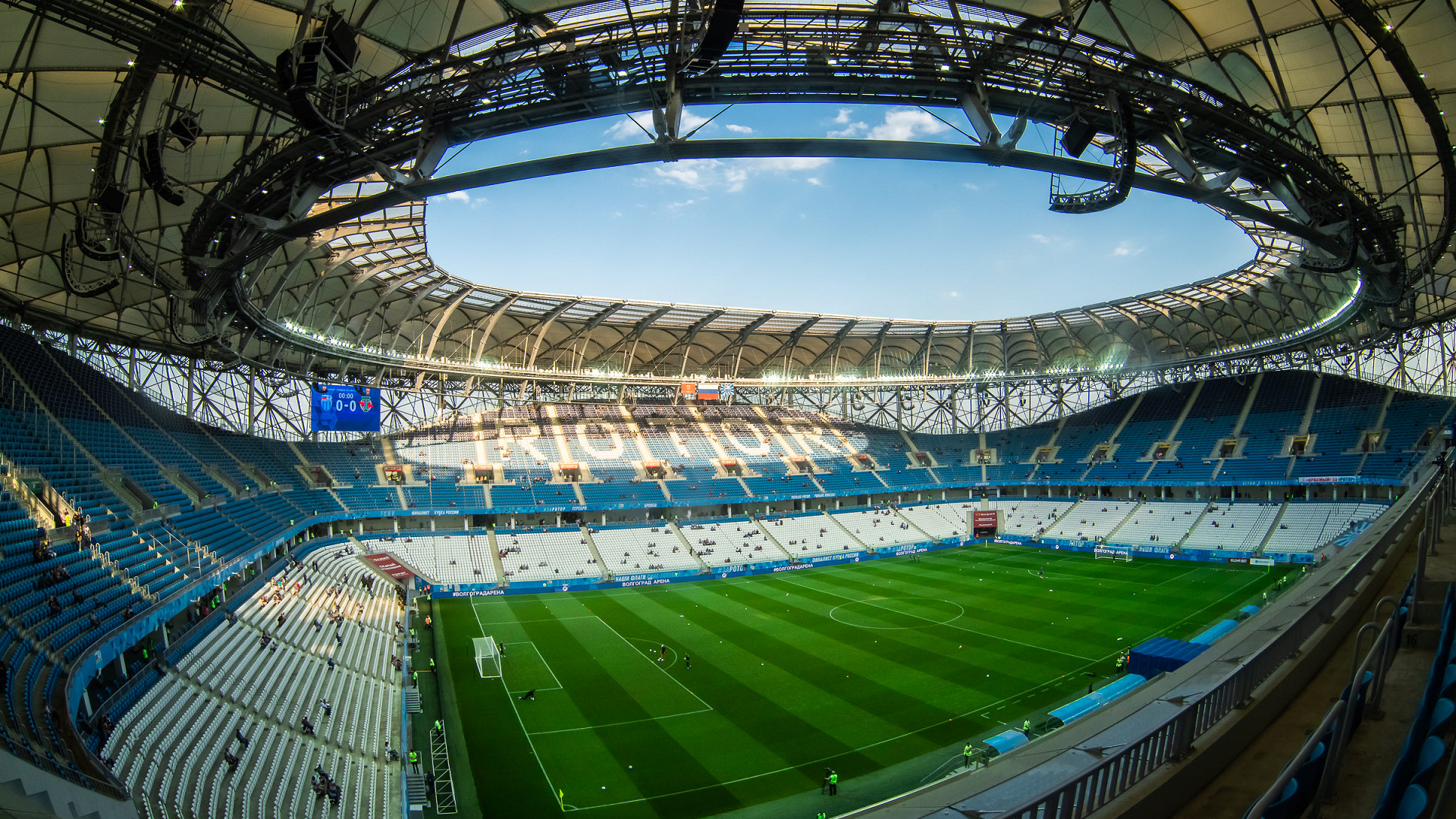
Photo: Rotor Volgograd; Mikhail Shapaev/RFU





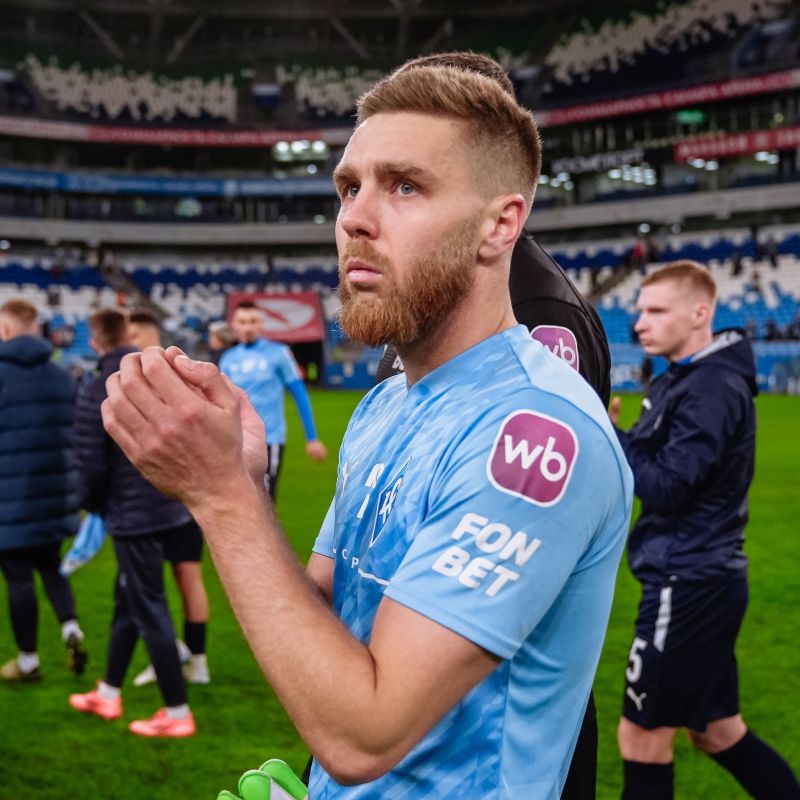
Обратная связь
Вы можете обратиться в РФПЛ с интересующим Вас вопросом или оставить сообщение (пожелание, замечание). Также вы можете сообщить имеющиеся у вас сведения о "договорных" матчах.